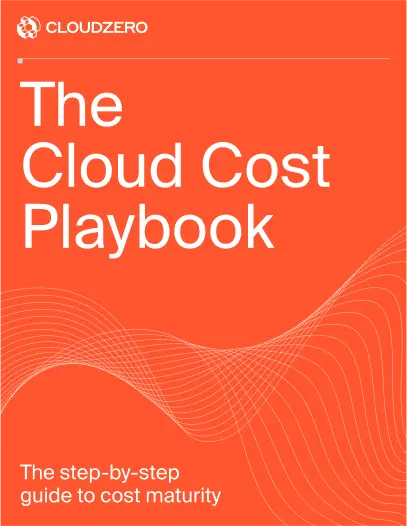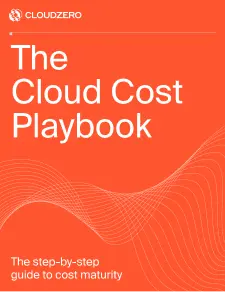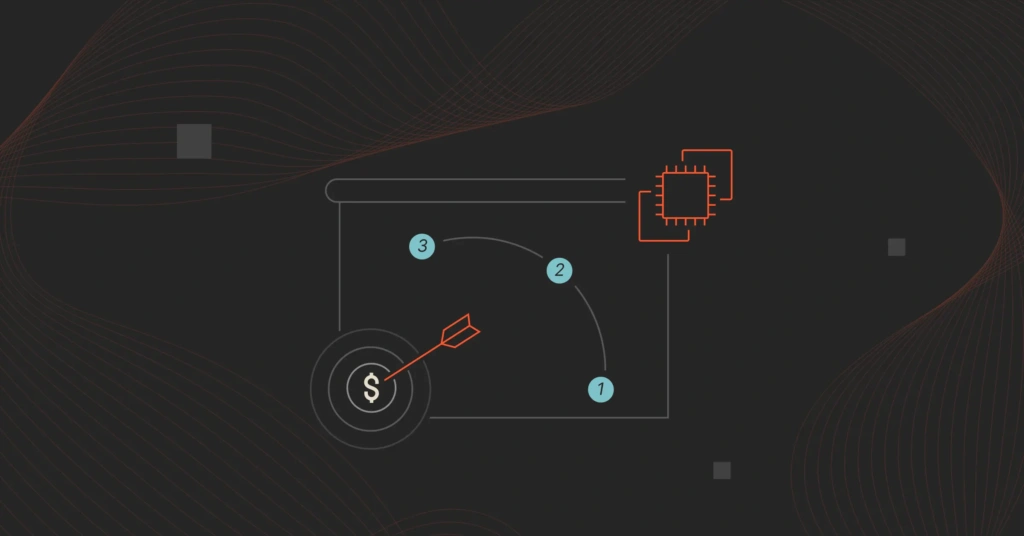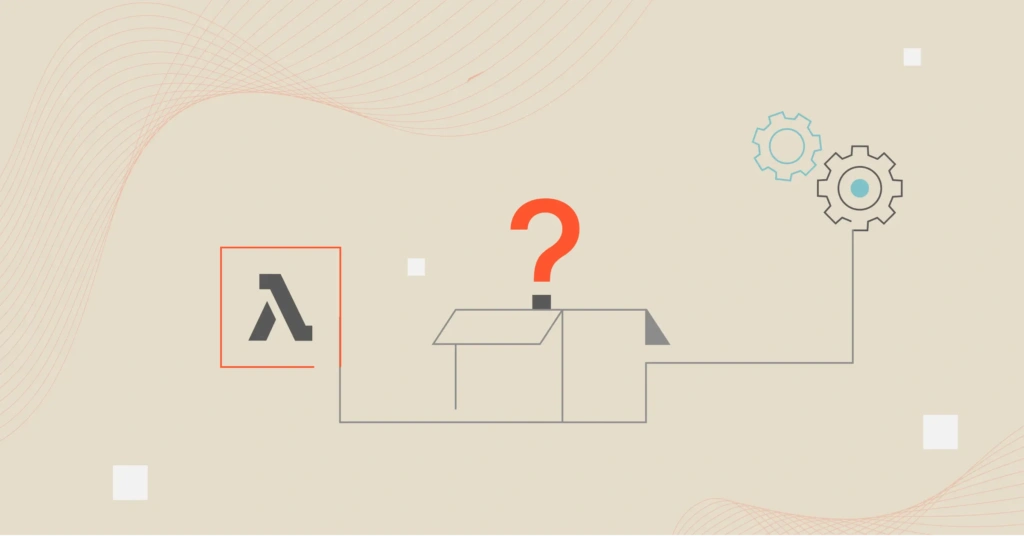Building quality software is tough. Even automation requires skilled developers to make it work. Yet, good developers are in short supply. You could offer attractive packages, too. Think: hybrid working, breakfast burritos, and organic chicken wings every Wednesday.
You’ll still need to ask the right DevOps interview questions to find and hire qualified DevOps engineers. So, we’ve compiled a list of over 50 options that can help you find and hire the best software engineers for your DevOps culture, including:
Table Of Contents
- Introductory Questions In DevOps Engineer Interviews
- Top Technical Skills Interview Questions To Ask A DevOps Engineer
- Top Soft Skills Interview Questions To Ask A DevOps Engineer
- Top Interview Questions To Assess A DevOps Engineer’s Behavioral Intelligence
- General DevOps Interview Questions To Ask Today
- How to Empower Your DevOps Engineers To Optimize Your Cloud Costs
Introductory Questions In DevOps Engineer Interviews
You can use these questions to break the ice, ease the candidate into the interview process, and get a sense of their skills, attitude, and level of self-awareness.
1. What’s your experience with DevOps?
Look for evidence of the candidate’s knowledge and experience across DevOps systems. This includes on-premises, web, and cloud technologies, two or more programming languages, automation, cloud architecture, and security configuration. Those with strong technical skills will be able to demonstrate how they have applied that breadth of technical skills in their previous jobs.
2. What drew you to DevOps?
The best DevOps engineers are driven by the benefits their work brings to the organization and end users. The best answer will not only explain what they enjoy most about DevOps engineering, but also what contributions they have made.
3. What benefits do you believe DevOps brings to a company like ours?
The best DevOps engineers are problem solvers. Good problem solvers develop solutions that fit their organization’s needs. Ideally, you want a developer who understands your business, potential challenges and opportunities, and how they see themselves contributing to it in the future.
4. What are our three core values that speak to you?
This question goes beyond screening what a candidate knows about your company. It also probes if the candidate feels they can contribute effectively and long-term within your organization’s DevOps culture.
5. As a DevOps professional, what do you consider the most important KPIs?
You can get a better idea of a candidate’s fundamental DevOps knowledge by asking them to define key DevOps key performance indicators. However, asking them to define their personal KPIs is an even better way to understand their priorities in a DevOps environment – and how they align with your organization’s DevOps objectives.
6. Our company runs almost entirely on Kubernetes, tell me about your Kubernetes experience.
Kubernetes remains one of the most crucial technologies for deploying cloud-native applications. However, scaling and managing K8s can be challenging, especially as your application grows. A strong candidate will acknowledge these challenges and explain how they have overcome them in the past. A top Kubernetes engineer will highlight some Kubernetes-specific strengths.
7. What’s your take on automation and what automation tools have you worked with?
There is more to this question than just understanding the candidate’s attitude toward automation. Further, you want to know whether they will proactively automate repetitive and time-consuming tasks in order to minimize waste (time, talent, and money).
Next, you can ask the candidate about the automation tools they have used for a reasonable period of time and their reasons for preferring those tools. A good answer will also explain how these tools work together.
8. Tell me about your favored DevOps best practices
At least two reasons make this a great high-level question. First, it screens the engineer’s understanding of how to implement the DevOps philosophy on a day-to-day basis. In addition, it allows you to quickly identify any gaps in their DevOps basics knowledge.
9. What’s your management philosophy?
An interviewee’s response to this conversation-starter may reveal a lot about their general attitude. It is useful for screening DevOps engineers interviewing for senior engineering or leadership positions, as it gives a sense of what a candidate expects of your existing leadership team and how they will interact with teammates.
Top Technical Skills Interview Questions To Ask A DevOps Engineer
By asking technical DevOps interview questions, you can determine how an engineer’s hard skills relate to your DevOps requirements. You may ask the interviewee to demonstrate a task, explain a process, or give reasons why they would choose one path over another.
10. What would you rank as your top four technical skills as a DevOps engineer?
You can determine a candidate’s main focus and knowledge depth by asking this question. Also, you can see almost immediately what contributions they could make to your current team.
The answer should be based on what they do every day, enabling you to determine whether in-house training will be necessary.
11. Walk me through your process of implementing XYZ?
Here is a follow-up question based on the DevOps engineer’s top four technical skills. Pay attention to the steps, tools, and practices they use and why. In addition, inquire about the results they expect from their actions.
You can further assess whether the candidate “sticks to the rules” or takes an unconventional approach that does not compromise the system’s integrity. This may reveal the difference between someone who is reproducing textbook material and someone who actually knows what they are doing.
12. Which programming languages do you enjoy working with the most and why?
DevOps engineers who are proficient in more than one programming language may be a valuable asset to your team. This is because DevOps leverages multiple programming languages to accomplish various goals.
An ideal candidate will know Python and/or Bash, among others, like Go, JavaScript, and Ruby. Ask several DevOps coding interview questions just to be sure.
13. Are you familiar with Chaos Monkey, Gremlin, or Chaos Mesh?
The purpose of this modern DevOps interview question is to assess a candidate’s understanding of chaos engineering and how to implement it.
This is an opportunity for the candidate to showcase their technical ability to proactively test a system, learn from the testing experience, and continuously improve it based on the data they’ve gathered.
14. In your experience, what is the most crucial initial step for a CI/CD transformation?
DevOps engineers know that CI/CD pipelines are key to delivering high-quality software updates, patches, upgrades, and new features regularly. This is an opportunity for the candidate to demonstrate their understanding of the DevOps pipeline and what they require to set up a working continuous integration and continuous delivery pipeline.
15. Tell us about what flaws, inconsistencies, or omissions are “must fix ASAP” for you?
Balancing engineering velocity with reliability goals can be challenging. So strong candidates will illustrate that they understand when compromises aren’t an option. A good candidate may note that problems with CI/CD systems, slow pipelines, and failing tests should be resolved ASAP rather than left unattended.
16. What process do you go through to pick out a suitable tech or tool you need when the shelf tools aren’t cutting it?
This question evaluates how well the candidate understands the role. A strong answer here will demonstrate how the candidate can relate the features of a DevOps tool to the job requirements.
Multiple tools can create complexity, which is why top DevOps engineers choose tools that perform more than one function. The candidate can also explain what trade-offs would need to be made by pointing out the pros and cons of each tool.
17. Are you familiar with big data and do you think it is required in our current environment?
This question is particularly important because it can shed light on an engineer’s use of data to make decisions, including areas for improvement.
The ability to collect, analyze, and share system insights relating to aspects such as performance, security, and cost is critical. Ideally, you would prefer someone who can help other departments in your organization aggregate and utilize their data.
18. You are working and realize a Linux-build-server is getting slow. What do you check?
Listen as a strong candidate explains how they would troubleshoot at the:
- Application level (issues that relate to RAM, Disk I/O read-write, Disk Space, etc)
- System level (issues that relate to application server log file or log file, system performance, memory leaks, and Web Server Log issues, such as HTTP, jboss, tomcat lo, or WebLogic logs to determine if the app’s server response/receive time is the problem)
- Dependent services level (issues to do with a network, antivirus, SMTP server response time, firewall, etc.)
19. What do you think of Blue/Green and Canary deployments?
In this question, you are looking for evidence that the candidate understands DevOps deployment types. It’s especially important to hear that the engineer prefers a deployment method that minimizes downtime and can be rolled back relatively easily if things don’t work out.
An excellent answer will talk about some prerequisites for supporting blue/green or canary deployment methods, such as running multiple containers or nodes behind a load balancer.
20. Can you come up with a strategy for branching to support biweekly releases?
This is not a yes or no question. Look for evidence that the engineer is excited about the challenge. But also keep an eye out for any pushback, and more importantly, the reasons for their hesitation and their alternative recommendations.
21. You realize a service is very slow. What is the next thing you do to minimize impact?
There are many ways a candidate’s technical decisions may impact your organization, and this DevOps interview question will help you determine whether they are aware of it. This may allow you to predict if the engineer can determine what fix to prioritize in order to stop bleeding before they can uncover the root cause of the issue and fix it permanently.
22. Walk me through your process of ensuring security throughout the DevOps implementation?
DevOps pipeline components aren’t inherently secure. Leaks or breaches of data can be costly and negatively impact a company’s ability to succeed. In order to help secure valuable assets running through your technology stack, your candidate needs to demonstrate intermediate to expert-level understand of employing DevSecOps techniques.
23. You realize a team member or unit has submitted code that contains several inconsistencies, errors, or bugs. What do you do and why?
It is common for software engineers to be more passionate about releasing new features than regressing code to fix bugs or tweak it. Here, a good answer will demonstrate patience with the teammate and an ability to balance short release cycles with maintaining the product’s quality.
24. Walk me through a time when you realized you needed to change your workflow within a specific phase of your DevOps lifecycle. And did the change improve things?
The work DevOps professionals do changes frequently. So, you’ll want a team member who is able to tell when things aren’t working, what’s causing the bottleneck, and be able to fix it so they can move forward as efficiently as possible.
25. What resilience testing strategies have you used in the past?
The DevOps lifecycle involves a lot of testing and quality assurance work. A good answer here will take you through the various techniques they’ve used before to assure the reliability of a system — in particular, Site Reliability Engineering (SRE) skills they have.
26. When you realize the customer has no idea what features their app needs, argues about it or refuses to admit it, what do you do to help?
Engineers know how software works. Software customers understand their own businesses and customer requirements. With this question, you are exploring how the candidate would approach a customer, understand their pain points, and then sell them on the solution.
27. Are you familiar with anti-patterns?
Anti-patterns are ways to solve a short-term issue with the expectation that you’ll revisit it later and provide a long-term solution. Ask the candidate to provide examples of when anti-patterns would be acceptable, how they would reduce the technical debt over time, and how they would resolve the issue in the long-term.
Top Soft Skills Interview Questions To Ask a DevOps Engineer
Communication, teamwork, and synergy across teams are essential to the success of any DevOps project, whether in-house or distributed. Here are some DevOps soft-skill interview questions that will help you bring together a harmonious team to reach a common goal with minimal friction.
28. How would a colleague or someone in another department describe you?
This question can help you understand a candidate’s level of self-awareness. Strong descriptions include “patient”, “initiative”, and “detail-oriented”. Yet, a strong answer will also demonstrate humility and an appreciation for others’ contributions.
29. Describe a time when you explained a complex DevOps concept to a customer, executive, or someone who wasn’t in software development?
It might be necessary for any of your software engineers to explain a highly technical concept to a stakeholder who does not have a development background. Answers from your top candidates will demonstrate patience and the ability to break concepts down using analogies or examples that are easy to understand.
30. Think back to a time when listening helped solve a worrying problem. What happened?
Many engineers are drawn to this field because they have an unquenchable desire to innovate and share their ideas with users.
DevOps projects involve many factors, including customer requirements and best practices to follow, so finding a professional who balances give and take and respects stakeholders’ viewpoints is crucial.
31. Tell us about a time you persuaded colleagues or other engineers to adjust their workflow
Top candidates will demonstrate a relentless commitment to improving a system. Top engineers will provide examples of times and scenarios when they have advocated for changes and then taken the initiative to implement those improvements.
32. What does an ideal work environment feel like to you?
If you want to know what type of working conditions your candidates are willing and capable of thriving in, ask them this question. A good answer may hint or expound your candidate’s expectations of your company and what they propose to give in return.
33. How do you help colleagues who are struggling to meet deadlines?
The purpose of this question is for the DevOps engineer to demonstrate how he or she would balance his or her individual contributions with those of the team as a whole.
Look for signs that the candidate cares deeply about the success of a project, which means he or she will help out colleagues to prevent bottlenecks. A great answer might include how the candidate would ask for help, if ever, if they got stuck themselves.
34. Suppose a teammate pushes back on a process you want to implement. How would you approach it?
You want to find evidence that the interviewee is open to constructive criticism, values others’ opinions, and is willing to see things differently given the immense role collaboration plays in DevOps. Even so, you’ll want to hear how they handled a situation where their idea was right and how he or she had persuaded others to follow his or her lead.
35. How did you approach a colleague or team member who was giving other team members a bad day?
Sometimes engineers will disagree, which can affect both the quality and quantity of their work. A DevOps team member who can identify, discuss, and resolve conflict harmoniously is a valuable asset.
Invite your candidate to explain how he or she would resolve a conflict involving two colleagues as well as a disagreement in which he or she is directly involved.
36. When did you feel that you’d failed at work? What actually happened, and what can you remember learning from the situation?
There are times when projects will not go as planned for a variety of reasons. Experienced DevOps engineers have dealt with one or more of these situations. A good response will acknowledge the frustration they felt and convey the lessons they picked up from the experience that they can apply to future projects.
Top Interview Questions To Assess a DevOps Engineer’s Behavioral Intelligence
With these type of questions, you’ll want to know how your candidate applied sound judgment, brought logic to the situation, and joined forces with other team members to fix the challenge.
37. Off the top of your head, what is one of the toughest situation you’ve ever had to solve in your career?
Of course, you want to hear about a real-life scenario they handled. Listen for how they navigated a situation that wasn’t part of standard operating procedure (SOP). Be sure to inquire about how they went above and beyond their job description to diffuse and resolve the situation.
38. What concerns you the most when you realize you are unable to effect change or control an aspect of your environment?
Here, you are looking for situations that the particular candidate considers worst case scenario — and what the impact would be. Their answer may point you to their priorities, awareness of the impact their job has on various stakeholders, and what they’d do if such a tricky situation was inevitable (crisis management skills).
39. Tell me about a time you had to juggle multiple projects at once successfully
You’ll almost always have to juggle several projects at once, sometimes with overlapping deadlines and equally crucial impact. This question is designed to invite the candidate to explain some techniques, tools, and processes they use to stay organized and adapt to shifting priorities.
40. You realize a team member left some resources running and accumulated a surprise cloud bill. How do you encourage them to avoid a similar scenario in the future?
Managing costs is one of the most challenging aspects of DevOps adoption and implementation. An applicant with a FinOps background may explain how he or she promoted cost as a first-class metric to colleagues.
A candidate without a “shift cost left” background will do well if they can express curiosity to be part of a cost-conscious culture and build cost-effective solutions that are competitive in the market.
41. Can you tell me about a time when you helped automate a previously manual process?
Here, you’re looking for a real-life example of how your candidate initiated a project to streamline a specific process, and what the results were. Pay attention to any mentions of actual time savings, reduced engineering workload, and the fewer colleagues it required to complete the process going forward.
42. Could you describe an instance when a stakeholder was causing blockers in the development process and how you managed it?
Sparks can fly when no one wants to admit that their code, check-in timing error, or documentation may have caused the issue. A candidate with strong leadership qualities can use their answer to demonstrate how they would bring people together by inspiring them to engage in way that makes each one feel valued, competent, and respected.
43. How did you handle a situation in which you weren’t happy with a project you’d worked on with your team? And what did you do to change that?
A candidates’ development skills are vital. However, having the innate personal commitment to improve a system’s efficiency and velocity is indispensable. Give them extra points if they’ll rally others to their cause rather than just act alone.
44. Would you like to share an example of a recent development project that you regret taking part in and why?
Experienced DevOps engineers can estimate the time and effort that a project will take – give or take. Also, they’ll have built a checklist to brainstorm project planning. Strong candidates will discuss what they hadn’t seen coming, what happened, and how they still managed to finish the project (perhaps on budget and on time?)
45. Can you share with us a time when you went the extra mile to help solve a problem at work?
Their answer here conveys both their passion and commitment level, as well as whether they can go beyond the job description to accomplish a task or deliver a successful project despite obstacles.
General DevOps Interview Questions To Ask Today
You can ask the following questions to pique their interest, stimulate reflection, and engage them about their long-term goals. Or, you can use these questions to conclude the interview on a high note.
46. What three ideas can you teach me that you read from a book – and what book are you reading right now?
You’re not merely looking for names of great materials with this DevOps interview question. Rather you want to know how they keep themselves updated about DevOps trends and industry influencers. Moreover, you want to know how they apply what they learn from others to real-life challenges. Give them bonus points for adding a fun, “non-work” book from which they learned a valuable work lesson.
47. What new project or technology are you thrilled about from a technical perspective?
The answer here will give you a sense of where your candidate sees DevOps in two to five years. Though the interest may still be in its early stages, being aware of the technology may indicate an engineer who’s keen on future-proofing their work.
48. What keeps you going strong at the end of the day?
This is a reflective question. A good answer here will emphasize the impact their hard work has on end users and the organization. An excellent answer will give real-life examples of times when their work (or their contribution as part of a team), made a notable impact to a cause their cared about.
49. What is it about your last two positions that you’d not want to experience here?
The answer to this sobering question can help you determine friction points to avoid with this DevOps specialist. Professionals will discuss their last employers with respect, even if they disagree with them, while raising their concerns and defining their professional boundaries.
50. As you take on this role, what do you expect to be a significant challenge?
Here, you are giving the candidate an opportunity to express what areas they may emphasize or spend a little more time on. Your candidate’s answer may also help direct attention to specific areas you as a team may need to explore together to prevent getting stuck.
51. What are you striving to achieve in your next DevOps role?
Ultimately, the best DevOps engineers thrive off challenge. With this question, you are trying to determine how the candidate keeps curious, the feats and interests they are actively pursuing, and how they match your long-term goals. Keep an eye out for signs of a passion for learning and advancing in their field.
What Next: Empower Your DevOps Engineers To Optimize Your Cloud Costs
Finding, screening, and interviewing qualified DevOps engineers may not be easy. But, it pays big to have the right team members working on your infrastructure.
Whether you are looking for your next great engineer immediately, or you’re planning a proactive hiring strategy to keep your talent pool humming, these top DevOps interview questions can help you succeed.
Also, if helping your software engineers understand how their technical decisions affect the company’s bottomline is something you care about, you’ll love CloudZero.
Our unique, code-driven approach to allocating cloud costs will help you reduce costly tech debt at the source, and ensure healthy margins for your products. By shifting cloud costs left, CloudZero empowers your engineers to build cost optimization into your DevOps culture. No endless tagging in AWS, Azure, or GCP required.
Your engineers see cost in a language they understand, like cost per feature, environment, deployment, and dev team, as well as get cost anomaly alerts via Slack, email, or favorite incident response tool.
This means you can embrace new services and dive headfirst into new projects, knowing you won’t overspend.  to see how CloudZero works!
to see how CloudZero works!








